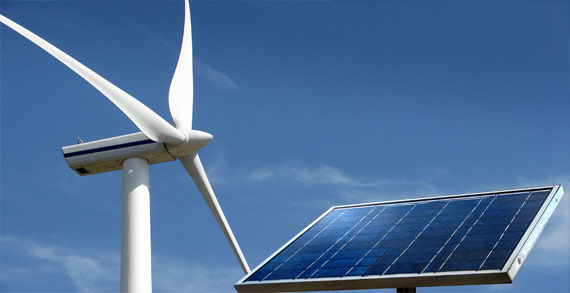
The generation, transmission and use of energy is one of man's activities with the greatest negative impact on the environment. However, compared to conventional sources, renewable energies, which are clean and inexhaustible resources provided by nature, have virtually no impact and always reversible.
Renewable energy also for its indigenous nature contribute to reducing energy dependence of a country on external supplies, lessen the risk of an undiversified supply, and promote technological development and job creation.
INGESOL, works daily to implement these clean and indigenous energy adapting to the needs our customers may have. Therefore, working on renewable energy sectors as diverse as:
INGESOL, has the expertise and human resources to carry out renewable energy projects in all (industrial, residential and tertiary) sectors.
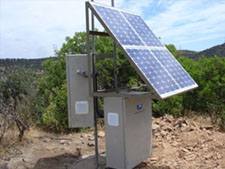
One way of harnessing solar radiation incident on Earth is its direct conversion into electricity through the photovoltaic effect. This advantage is realized through the use of solar panels composed of silicon cells that transform said incident energy into electrical energy. There are basically two types of applications of solar PV: Isolated electrical facilities and power generation network connected to the network.
Isolated Systems Solar PV: thanks to this technology can provide electricity in places far from the electricity grid. This way, you can provide electricity to cottages, mountain lodges, water pumping, livestock facilities, lighting or marking, communications systems ... Isolated systems are mainly composed of solar energy through solar panels photovoltaic and storage of electricity generated by the panels in batteries for later consumption.
Grid-connected PV systems: this application is to generate electricity using photovoltaic solar panels and inject it directly into the electrical grid. Currently, in countries like Spain, Germany or Japan, the electricity distribution companies are required by law to purchase the energy injected into the grid by these photovoltaic plants. These systems seek economic compensation and represent an investment in the medium and long term.
The main services offered by INGESOL, SCL in this field are:
INGESOL, has a multidisciplinary team that performed all phases of implementation from the project and study to commissioning of the facility, and not least, the support to post-implementation customer.
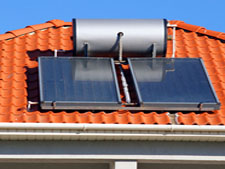
Harnessing the sun's energy can be achieved in two ways: without the mediation of mechanical elements (passive) or mediation of mechanical elements (actively). Active solar energy, in turn, can be low temperature, medium temperature and high temperature, as is direct uptake, low concentration index or high concentration index. The low temperature applications, made with glazed flat, known as solar collectors are the most widely used commercially. Its most interesting applications are:
INGESOL, performs work for both private customers and business and industry for the implementation of solar thermal energy so that it can be used for the needs you have to meet the client, from small installations to heat water for the bathroom or kitchen, to large installations where hot water is used both for ACS and for heating or industrial uses.
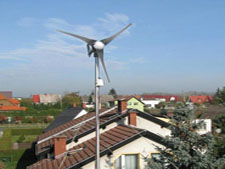
Renewable, ecological and environmentally friendly. So wind energy, which is becoming one of the most widespread and productive for generating electrical energy worldwide methods. Today, this energy source is applied to both large scale and small household systems.
Wind energy is a renewable energy source that uses wind power to generate electricity. The primary means to obtain it are the wind turbines, "windmills" resizable with blades that transform the kinetic energy of wind into mechanical energy (later transformed it into electrical energy). For a good performance of the wind turbines is necessary to make a preliminary study of the site where it will be located, as well as meet a number of requirements. The first thing you have to do is a measurement of the wind at different heights and check its direction and speed. This first step, known as the "compass rose". Thus, not only you will know what is the best position to place wind turbines, but also serve to confirm that the location is suitable for installation.
INGESOL, work's focuses on the study of the adequacy of customer needs to supply wind resource in the established location and deployment for applications that are necessary, from pumping water to produce electrical energy.
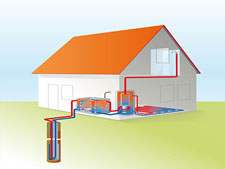
Geothermal Energy is a renewable energy source that uses the heat that exists in the subsurface of our planet. Its main applications are in our daily lives: health acclimatize and get hot water ecologically both large buildings (offices, factories, hospitals, etc.) and homes. The high temperature geothermal resources (more than 100) are used to generate electricity, while lower temperatures are optimal for industrial, service and residential sectors.
Geothermal energy has many advantages, among which are:
INGESOL , task focuses on its use in heat generation and focuses on the study of the needs of our customers for the installation of heating and plumbing in homes (usually single-family homes), or for heating swimming pools, or for use on farms and subsequent implementation and monitoring.
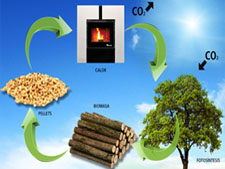
Biomass energy is obtained from organic compounds by natural processes. The term biomass is referred to solar energy converted to plant organic matter and animals, which can be recovered by direct or transforming that matter in other fuels such as alcohol, methanol or oil combustion. You can also obtain biogas composition similar to natural gas from organic waste.
Qualities of Biomass Energy:
INGESOL, carry out projects for the implementation of biomass energy in common or residential homes, cottages and farms or isolated, to generate hot water and heat to improve comfort conditions in them, by installing, for example of biomass boilers.